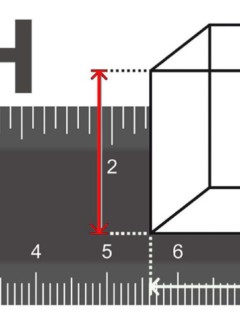The COVID-19 pandemic, or coronavirus, is keeping the world on tenterhooks. There is great uncertainty in dealing with the new type of virus.
Retailers have had to close down across the board. But those who believe that online trade can now expect record revenues are mistaken. Online retailers fear massive losses due to the Corona crisis. Buying behaviour is shifting to the purchase of “necessary” products such as food and hygiene products. And especially in B2B, immense sales losses have been recorded and are expected to continue. DPD, for example, reports that the increased deliveries to private households cannot compensate for the losses in the commercial sector.
In general, there is a great deal of uncertainty among consumers: Does my ordered product come from a risk area? Will it even reach me and can I possibly catch it from parcels and consignments I receive?
Can I get infected via parcels?
Basically, the virus is transmitted from person to person via droplet infection. It is therefore important to protect the mouth, nose and eyes in particular. Transmission via smear infection has not yet been confirmed, but it cannot be ruled out either. The Federal Institute for Risk Assessment (BfR) answers the most pressing questions in this context on its homepage.
According to professor and virologist Ulrike Protzer, however, infection via parcels and letters is unlikely for several reasons:
- Parcels and letters have an absorbent surface that destroys the virus’s envelope and dries it out.
- During transport, the virus is also dried out by the air.
- The virus is destroyed by sun and UV light.
Researchers have tested the coronavirus for viability in aerosols, on plastic, stainless steel, copper and cardboard. Infectious viruses were detectable in the laboratory environment for between four hours and up to three days. However, the number of infectious viruses dropped significantly over the period on all surfaces. According to the BfR, human coronaviruses have a relatively low environmental stability. The virologists Hendrik Streeck and Christian Drosten also emphasised that although the virus is generally able to survive longer on surfaces, the detection of viable viruses in laboratory tests does not mean that an infection will actually occur in reality.
Will there be delays in delivery?
Many regions are sealed off, passenger traffic is severely restricted or even stopped. Some companies have had to stop production. There are increased production and delivery delays.
According to DHL, parcel delivery within Germany is not yet significantly restricted by the Corona virus. For shipments abroad, however, the situation is different. Border controls, the elimination of transport routes or quarantine measures are causing enormous delays in delivery. In some areas, delivery is no longer possible at all: parcels to China, Hong Kong and Macau are no longer accepted. Shipments already posted to some areas are being returned to the sender. This affects:
- in Europe: Czech Republic to postcode areas 78321, 78324, 78391, 78401, 58401;France: Delivery of DHL Europaket shipments is currently not possible in the south of France. DHL therefore recommends DHL Paket International; Luxembourg: Delivery of DHL Europaket items is currently not possible in Luxembourg. DHL therefore recommends DHL Paket International.
- Worldwide: Cayman Islands, Djibouti, Ecuador, French Polynesia, Kuwait, Lebanon, Libya, Maldives, Morocco, Moldova, Mongolia, Myanmar, New Caledonia, Peru, Philippines, Somalia, Sri Lanka, Suriname, Tunisia
Anyone who has ordered online and is waiting for a parcel should take the current situation into account and be prepared for possible delays in delivery.
Should parcels still be accepted directly?
For protection, personal contact should be limited as much as possible. It is therefore advisable to no longer accept parcels in person. For this reason, DHL does not require a customer signature when handing over a parcel. It is also recommended that parcels be delivered to a Packstation or a designated drop-off location.
When Hermes delivers a parcel, the signature on the scanner is no longer necessary. Customers simply sign their name on the parcel and the delivery person takes a photo of the signature so that the delivery is legally documented. However, a desired delivery location can also be specified.
DPD has switched to contactless delivery. In a letter DPD states:
Healthy through the pandemic
It is up to each and every one of us to prevent the spread of the coronavirus. So far, parcel delivery within Germany is still running without any major restrictions. According to experts, infection via parcels is also very unlikely.
With simple measures, one can protect oneself and also others from infection. The Federal Government recommends:
- Keep as far away as possible when coughing or sneezing.
- Cough or sneeze into the crook of your arm or into a paper handkerchief, which is disposed of afterwards.
- Avoid touching other people.
- Wash hands regularly with soap and water for at least 20 seconds.














